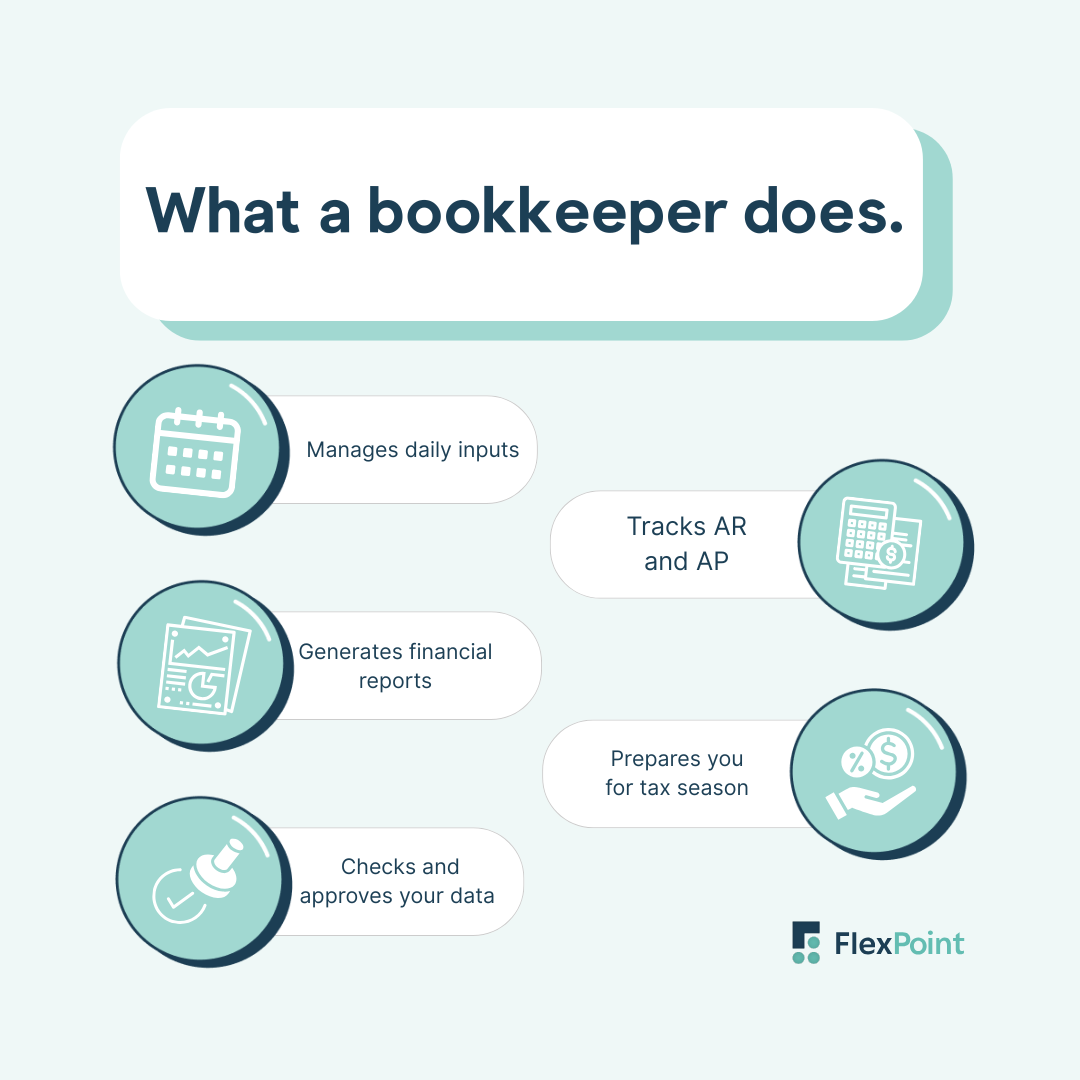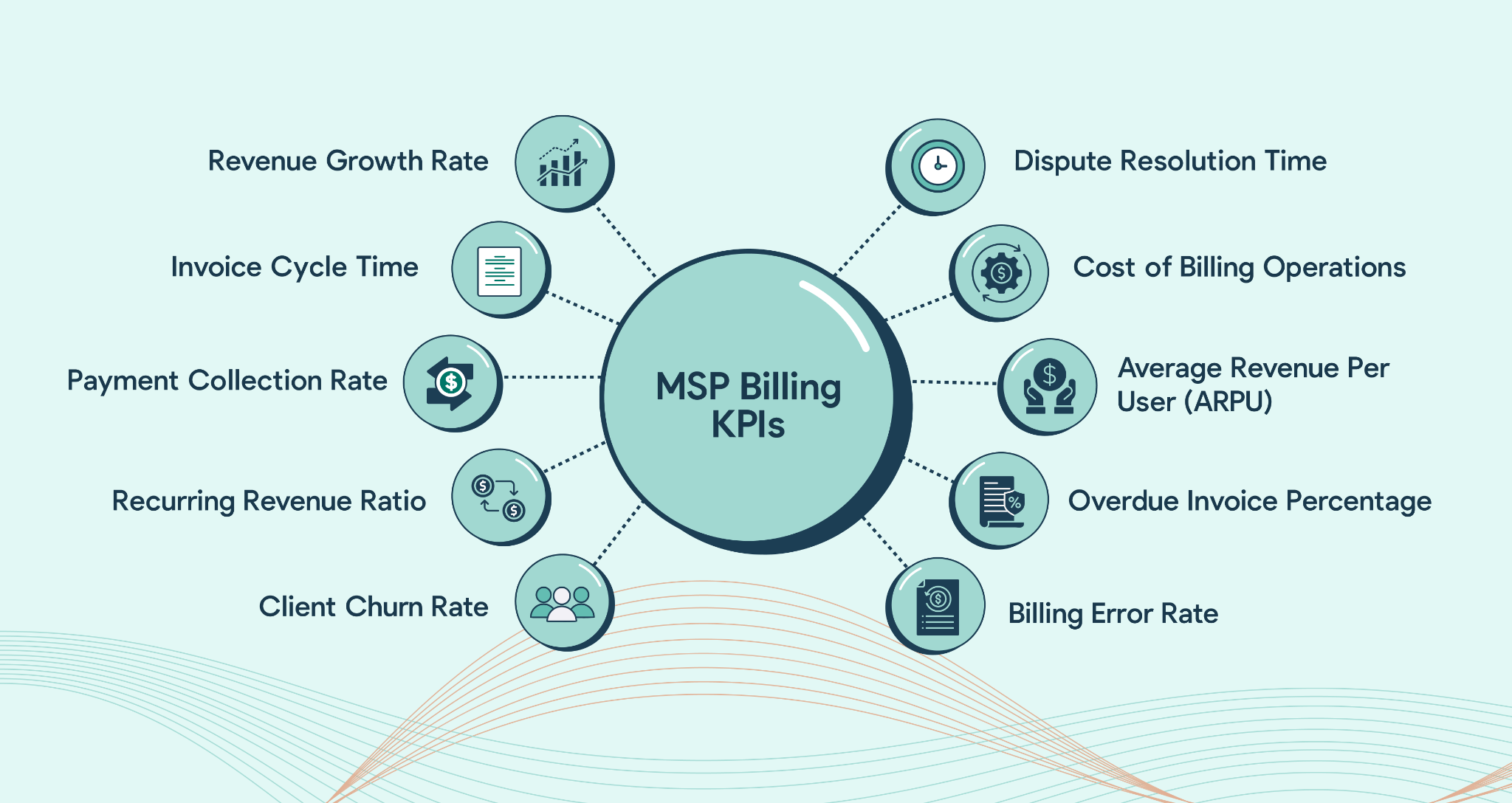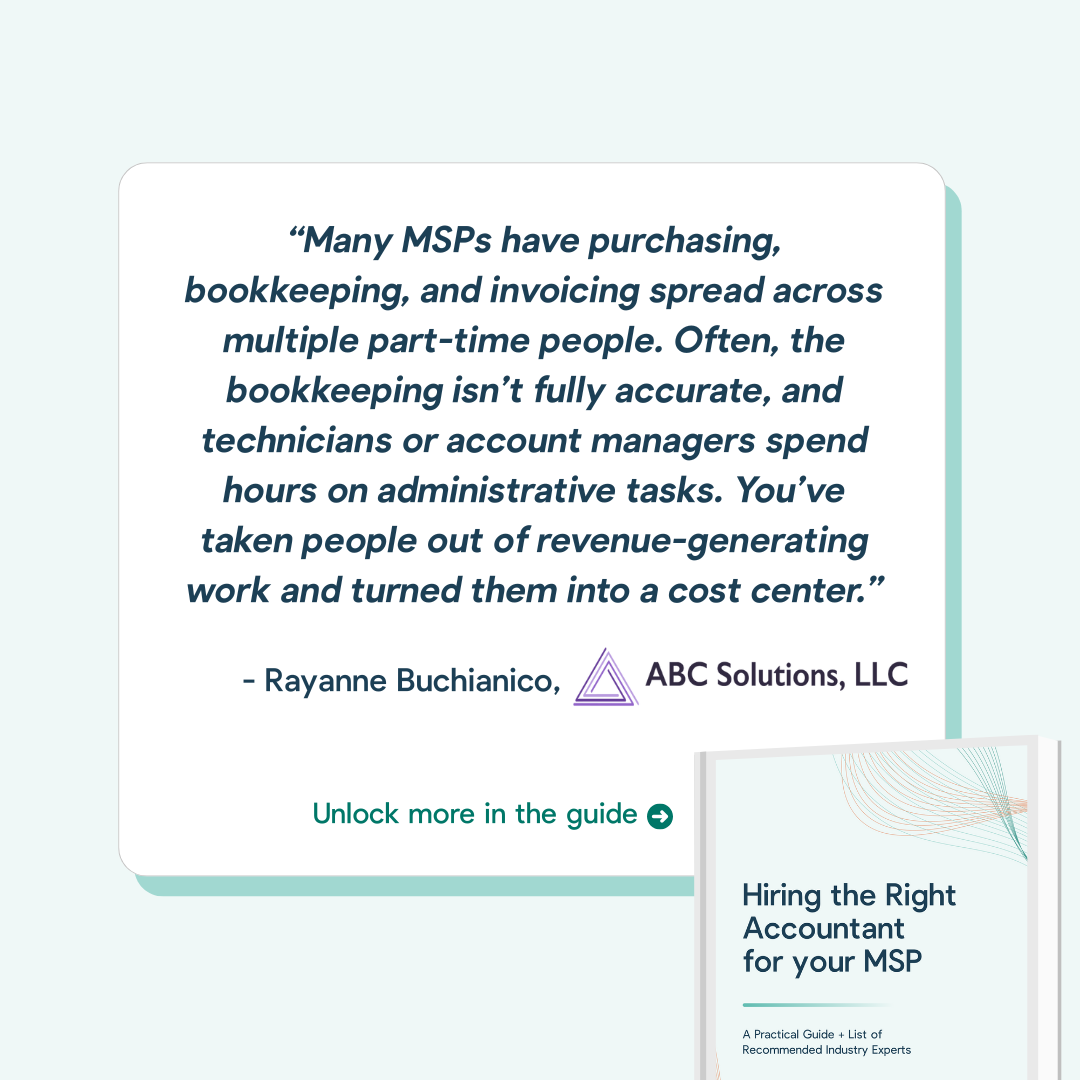MSP Accounting
Why You Should Never Go Cheap on MSP Bookkeeping

Bookkeeping may not be the flashiest part of running an MSP, but that does not make it less critical. And yet, too many MSPs treat bookkeeping like an afterthought for the back-office – something that’s handled by a family member, a generic bookkeeper, or a bargain freelancer. After all, if money is rolling in, that’s all that matters… right?
The temptation is real and understandable for any service provider when the margins are already razor-thin. Usually, the thought goes: “Something has to give, so why not this?”
However, the real consequence of not treating bookkeeping seriously (or opting for the cheapest solution) is financial blind spots, cash flow crises, and expensive cleanup projects that could have been easily avoided. In short, going cheap on bookkeeping puts your MSP at risk.
If you’re not convinced, let’s break down why.
Bookkeeping Is Not Just Data Entry
One of the biggest misconceptions we hear from MSP owners and accounting firms is that bookkeeping is just “keeping QuickBooks up to date.” It’s easy for owners with more macro perspectives, like leadership and strategy, to dismiss bookkeeping as a simple “data in” process that has little impact on the momentum of your MSP.
In reality, bookkeeping is the foundation of every decision you make.
Yes, a bookkeeper’s day-to-day may look like:
- Recording daily transactions correctly, so revenue and costs are categorized properly.
- Tracking invoices, payments, and expenses in real time.
- Ensuring accounts receivable (AR) and accounts payable (AP) stay under control.

But when done well, bookkeeping gives you the accurate, timely data you can trust and lean your decision-making on.
It isn’t just about having the numbers put in the right slot; it’s also about having the right numbers.
The MSP business model is unique, which means it’s easy for an inexperienced bookkeeper to make costly errors. Consider that a cheap bookkeeper may cut corners or simply not understand how your business operates. They can gloss over your recurring revenue model, your COGS, or how to track ad hoc projects vs. packaged managed services. These mistakes inevitably result in bad numbers and no actionable insights.
Bad bookkeeping creates a ripple effect of problems that force accountants, owners, and potential future buyers to question the integrity of the MSP…you never want to have to guess if you’re in the red. What’s worse is believing you’re profitable, making an investment into a new hire or license, and then realizing you’ve made a mistake that puts you even further behind.
That’s why bookkeeping is not just data entry. It is data mastery. Having someone on your team who actually knows what is happening is crucial to your success as an MSP.
The Hidden Costs of Bad Bookkeeping
It’s tempting to compare a $300/month bookkeeper to a $1,000/month specialist and assume the “savings” are worth it. Technically, your out-of-pocket is lower. That extra $700 might even feel like extra money you can funnel into a more visible win like a new license or employee.
But with bookkeeping, what you don’t see is what costs you. The cracks don’t appear right away. They build quietly: invoices slip, costs are misclassified, and suddenly your accountant is spending more time cleaning up your data than analyzing it.
That’s why it’s helpful to stop thinking of bookkeeping as “just a service” and start thinking of it as the stability of your business. If your MSP was your house, bookkeeping is the foundation. And you wouldn’t cheap out on the labor or materials to do such a central job. You might get away with cutting corners for a while, but eventually those cracks spread and when they do, the repair costs will dwarf what you thought you saved.
We’ve broken down the detailed cost of hiring the wrong bookkeeper in a separate post, The Cost of Hiring the Wrong Bookkeeper for Your MSP. For this article, the important takeaway is that bad bookkeeping doesn’t just drain your bank account. It drains your momentum.
Your team stalls out, stuck combing through spreadsheets instead of closing deals, while your competitors keep moving forward.
Most MSPs only realize they’ve crossed that line once the mistakes pile up.
Why MSPs Can’t Afford Generic Bookkeepers
It’s one thing to have a “good enough” bookkeeper who knows their way around QuickBooks or Xero. That may work for a coffee shop or a contractor, but MSPs aren’t “regular” SMBs.
The financial model of an MSP is different. And without someone who understands that, you end up with distorted reports, hidden blind spots, and missed opportunities. Here’s why:
Recurring Revenue + Project Work
MSPs juggle subscription-based contracts alongside one-off projects. A generic bookkeeper may lump all income into one category, which masks whether your recurring contracts are driving profitability or if your project work is quietly draining margins.
Matthew Zaroff at Visionary360 was able to explain the importance of the different kinds of work MSPs do here:
Complex Cost Structures
SaaS resale, vendor pass-throughs, prepaid agreements, and technician labor all need to be categorized consistently. Even small missteps here can snowball into distorted financials that make services appear more or less profitable than they actually are.
Technician labor is common example of how this gets tricky. Without rules for splitting project vs. recurring work, it’s hard to tell which contracts are profitable and which ones are silent drains. A strong MSP-savvy bookkeeper will tie labor costs back to the right revenue streams, so you’re not lumping all payroll together and missing the story behind your margins.
Compliance & Due Diligence
From sales tax to contract liabilities, MSPs face compliance requirements that don’t exist for most SMBs. For example:

Most MSPs also have clients in multiple states meaning there are different laws regarding surcharging that are significant.
And when it comes time for financing or due diligence, sloppy records can kill the deal entirely.
PSA Integration
If your bookkeeper never talks about ConnectWise, Autotask, or HaloPSA, that’s a red flag. Without PSA-to-accounting alignment, you’ll never get clean service-line reporting. That means you’ll always be guessing about margins instead of making decisions based on truth.
According to Sage, SMBs spend the equivalent of 120 working days per year on administrative tasks, including bookkeeping. If the PSA-to-accounting isn’t managed properly, that time could easily be doubled spent fixing records.
What “Good” MSP Bookkeeping Looks Like
So if generic bargain bookkeeping won’t cut it, what does “good” bookkeeping for an MSP look like in practice?
At its core, it comes down to four things:
Accuracy
A good bookkeeper reconciles your PSA and accounting system every month, not just at year-end. They ensure SaaS resale, vendor pass-throughs, labor, and fixed-fee contracts are categorized correctly. This prevents recurring mistakes from snowballing into false profitability reports.
They already have strong GAAP fundamentals and come with recommendations.
Insight
Instead of stopping at “data entry,” a good bookkeeper translates your numbers into useful reporting: AR aging, AP balances, gross margins, and service-line profitability. They equip you—and your accountant—with numbers you can actually act on.
MSPs have lots of KPIs to watch out for, the right MSP-focused bookkeeper will be able to consider all of these:

A right bookkeeper knows what to keep their eye out for because they’ve worked with MSPs before and know what is fundamental to an MSP that may be irrelevant for a regular SMB.
Proactivity
The best bookkeepers prevent them. They spot AR aging issues before clients drift into 90+ days past due. They flag mismatches in PSA data before they pollute your P&L.
One example comes from Visionary360, who uncovered that one client was missing out on $50,000 per month in revenue because of a bookkeeping oversight. The difference between “data entry” and “data mastery” isn’t theoretical, it’s measured in real dollars that go into your business.
A proactive bookkeeper finds you money and saves you time.
Scalability
Finally, the right bookkeeper builds processes that can handle growth. Whether you’re moving from $500K to $1M in revenue or preparing to sell, they make sure your books won’t buckle under added volume or pressure. For example, FinOptimal notes that scalable accounting systems with cloud integration, automation, and multi-entity support let companies grow transaction volume significantly without needing to add matching admin overhead.

Simply put: a good bookkeeper protects your business. Anything less puts your growth at risk.
Your Next Steps
Harvard Business Review reports that bad data costs U.S. businesses $3.1 trillion annually. Bookkeeping errors are one of the earliest and most preventable forms of ‘bad data’.
Cheap bookkeeping isn’t really cheap; it’s deferred cost. Whether this pain shows up as cash flow issues, cleanup bills, or missed opportunities, the costs will eventually find you. Even if your pockets may feel slightly lighter on the month-to-month, you are paying with your future.
This is where MSP-specialized bookkeeping firms shine. They know the importance of mapping PSA data to your chart of accounts, categorizing costs correctly, and ensuring your recurring revenue reports actually reconcile with your bank balance.
If you’re interested in a list of MSP-focused financial partners who have already been vetted, we have a list available here: Hiring the Right Accountant for your MSP
Investing in MSP-specialized bookkeeping early gives you: the clean, trustworthy numbers you need to run your business and make forecasts, confidence in your tools and choices, and a foundation for accountants, lenders, or buyers to evaluate your company. Ensure sure they're the right fit by using this free checklist.
Don’t wait until you’re facing a six-figure cleanup project to take bookkeeping seriously. Pay for quality now, and save yourself years of stress, uncertainty, and lost growth.
If your MSP is growing or has suspiciously stalled, it’s time to evaluate your finances and team a little closer.

